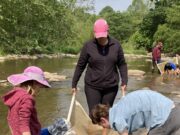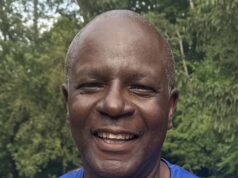Hiram – Hiram College will help build bridges between local high schools and their international peers, thanks to a grant from the U.S. Department of State. The program is in collaboration with Case Western Reserve University, The Shoals Marine Laboratory and the Cleveland Metropolitan School District.
The grant, totaling $492,309 for “Public Diplomacy Programs for Afghanistan and Pakistan” is the largest federal grant on record that Hiram College has received.
Through this grant, Cleveland-area and Pakistani high school students and teachers will spend several weeks together in learning communities, exploring ways to address the international water crisis from the ground up. The program, “Connecting Pakistani and American High Schools Through International Watershed Partnerships,” is an international twist on the Igniting Streams of Learning in Science (ISLS) program that Professor of Biology Denny Taylor has coordinated since 2007. The grant will fund the program from October 2014 through May 2016.
“The program is based on the principle that high school students become more connected with themselves, with one another and with the world at large when they explore real-world problems and when their discoveries make a difference,” Taylor said. “Our program calls for the formation of non-traditional partnerships among American and Pakistani high schools, universities, local community partners and government agencies – partnerships that are necessary to solve the unprecedented global water crises of the 21st Century.”
The cohort will spend nine days at Hiram College, five days at Case Western Reserve University in Cleveland and five days at Shoals Marine Laboratory in New Hampshire during a summer 2015 institute. Several Hiram College and Pakistani undergraduates will travel with the high school students to each site, as “near peer mentors.”
Robin Singleton ’15, one of the “near peer mentors” for the summer 2014 pilot program that Taylor recently coordinated, said she and the other undergraduates played a valuable role.
“We didn’t just learn the science behind (the water crisis), but the protocols for putting something like this together,” the biology major from York, Pa., said. “And being closer in age (to high school students) than the others involved was beneficial because we have a slightly better understanding of how high school students want to learn, and we can relate to them.”
The undergraduate mentors will also facilitate communication between the Pakistani and American peers once the summer institute is complete. Before parting ways, the students will put together an action plan that they will teach and model to their peers back home. They will continue to meet virtually through fall and winter 2015 to share success stories and challenges.
The value of the program goes far beyond getting high school students engaged and active in the fresh water crisis; it is a starting point, Taylor said, for “how we think about our relationships with each other and our relationships with the world.”













